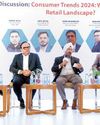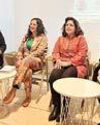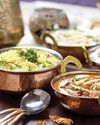ASHOK Kumar Gupta, Secretary, defence production, says that government efforts had immensely incentivised private sector participation in manufacturing for the defence forces, pointing to the spurt in the licences issued between May 2014 and June 2016.

Altogether 125 licences were issued in the span of the two financial years, compared to 217 licences issued between 2001 and May 2014. In a freewheeling conversation with Suman K. Jha, he discusses a range of issues, including the promises and challenges of the Make in India initiative in defence production.
Many consider the government set target of 70 per cent indigenisation in defence production by 2027 too ambitious. It is your target too, but is it achievable?
We would like to achieve it even earlier. A number of initiatives have been taken in this direction. We are on the right path. The country is now on the threshold of defence manufacturing under the Make in India initiative. It aims to reverse the current ratio between imports and indigenous manufacture of defence material, without adversely affecting the requirements, capability and preparedness of the Armed Forces. Achieving this will require equipping the country with the ability to design, develop, manufacture, integrate, test, maintain and upgrade defence systems we require.
India is in the midst of modernizing its Armed Forces and an estimated $250 billion will be spent on capital procurement over the next ten years. Moreover, in the new Defence Procurement Procedure 2016, ‘Buy (Indian-IDDM)’, ‘Buy (Indian)’, ‘Buy & Make (Indian)’ are the most preferred categories, which means that increasingly Request for Proposals (RFP) will be issued to the domestic industry. Foreign OEMs (original equipment manufacturers) can leverage domestic demand by tying up with domestic companies, either for collaborative R&D followed by production or through transfer of technology for production through joint ventures. Alternatively, they can set up their own manufacturing base here.
India plans to boost arms exports 20-fold to $3 billion over a decade. How are things shaping up?
Denne historien er fra October 3, 2016-utgaven av Businessworld.
Start din 7-dagers gratis prøveperiode på Magzter GOLD for å få tilgang til tusenvis av utvalgte premiumhistorier og 9000+ magasiner og aviser.
Allerede abonnent ? Logg på
Denne historien er fra October 3, 2016-utgaven av Businessworld.
Start din 7-dagers gratis prøveperiode på Magzter GOLD for å få tilgang til tusenvis av utvalgte premiumhistorier og 9000+ magasiner og aviser.
Allerede abonnent? Logg på

Technology, AI Driving Warehousing Sustainability
Anshul Singhal on how Welspun One is rapidly transforming Grade-A logistics and industrial parks across India, offering integrated fund development and asset management for large-scale warehousing solutions

DECODING RETAIL'S NEXT FRONTIER
As brands pivot towards omnichannel ecosystems and startups challenge legacy frameworks, the focus sharpens on experiential retail, sustainability and data-driven personalisation.

SORORITY OF WOMEN OF METTLE
Awinter afternoon in mid-December found quite a crowd at the Oxford Book Store on Connaught Place, as bibliophiles congregated at a corner to listen to three women authors, diverse in their passions, but drawn together by an urge to tell their story.

THE LEGACY OF THE AMARNATHS
IN NOVEMBER 2017 the management committee of the Delhi Cricket Association named the eastern stand of the Feroze Shah Kotla ground the Mohinder Amarnath stand.

PUTTING THE POWER IN THE POWERHOUSE
The Asus ExpertBook P5 is powered by an 8-core 8-thread Intel Core Ultra 7 Series 2 processor that clocks a maximum speed of 4.8 GHz, but it does not have hyperthreading. It is light weight, with a smooth glass touch pad. The laptop almost has all the I/O ports you could possibly need in a business laptop, making it an extremely lucrative option for professional computing, says

"We must be aware of our energy and water consumption"
BW Businessworld caught up with actor, philanthropist, and climate warrior BHUMI PEDNEKAR to chat about climate change and more.

"Cooking is a passport to the world"
In conversation with renowned CHEF MANJIT GILL, Advisor at Kikkoman India and President, Indian Federation of Culinary Associations (IFCA). As the former Corporate Chef of ITC hotels, Chef Gill has helped shape iconic restaurants, such as the Bukhara, Dum Pukht, and Dakshin. He has had the privilege of serving former American Presidents Barack Obama, Bill Clinton, George Bush, and the French, Canadian, British and German premiers. In 1992, Chef Gill had the opportunity of being invited to cook for Prince Charles and Lady Diana, at the Palace of the Maharaja of Jaipur. He was awarded the Lifetime Achievement Award from the Ministry of Tourism in 2007.

Strengthening Middle Management for Organisational Resilience
WHAT HOLDS AN organisation together in chaos? Is it visionary leadership, cuttingedge strategies, or robust technology?

The Retail Trailblazers
A look at companies that are making a positive impact on India's growing retail sector with their future fit business and marketing strategies.

Driving Conscious Consumerism
VIDIT JAIN, Co-founder of Kindlife, is leading the charge in revolutionising the intersection of technology and conscious consumerism.